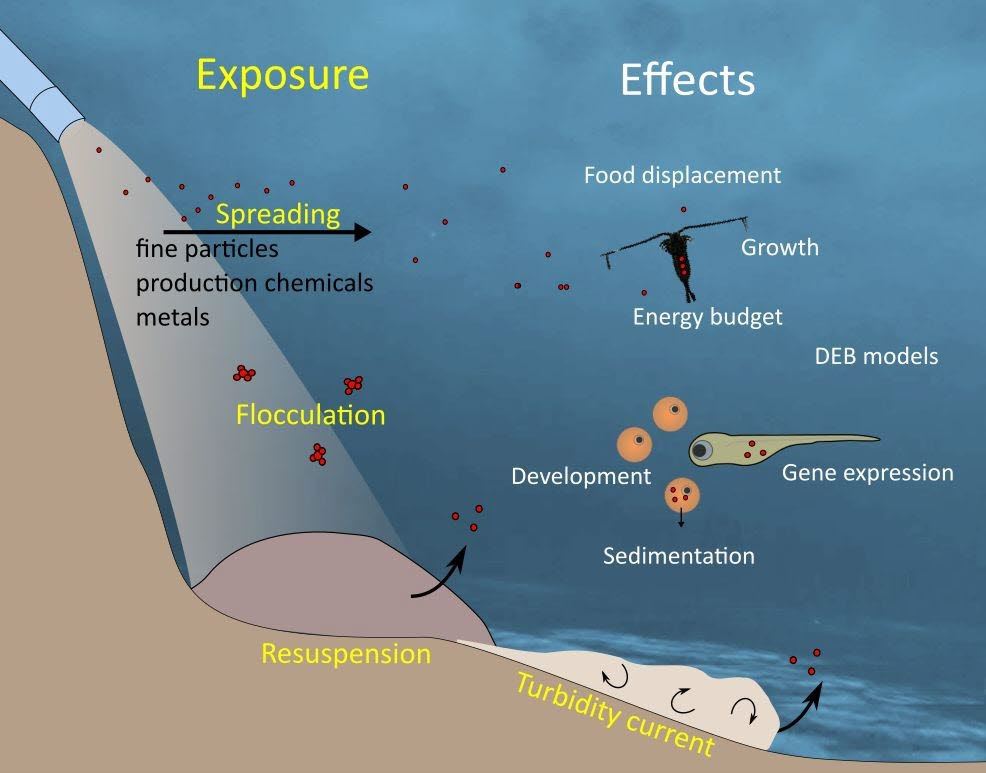The rising demand for mineral resources is driving increasing mining activities worldwide. Mining generates large quantities of tailings, which, in several countries including Norway, are disposed in the sea. During marine tailing disposal large quantities of fine inorganic particles, associated metals and processing chemicals are introduced into the marine environment and can potentially cause significant stress for exposed organisms.
Sub-optimal conditions and stress may not necessarily lead to the immediate death of exposed organisms but can affect their energy balance. This means that energy will have to be directed towards maintenance of basic body functions and handling of stress, in the expense of development, growth and reproduction. Early life stages of animals such as larval stages of fish and copepods, are particularly vulnerable to stress since their energy requirements for development and growth are high.
In the DiTail project we will study how exposure to fine tailings will affect marine copepods, fish eggs and fish larvae by integrating data from physical, physiological and molecular measurements into dynamic energy budget models.
Further, we will develop models based on effect studies to predict the likelihood of exposure to tailings. This will enable us to predict risk for populations of copepods and fish species living in fjords where tailings are disposed.
Project Partners:
- Nord University (project lead)
- SINTEF Ocean
- NTNU
- BioTrix
- DEBtox research
- University of Chile
Project leader:
Pål Olsvik (NordUniversity)


